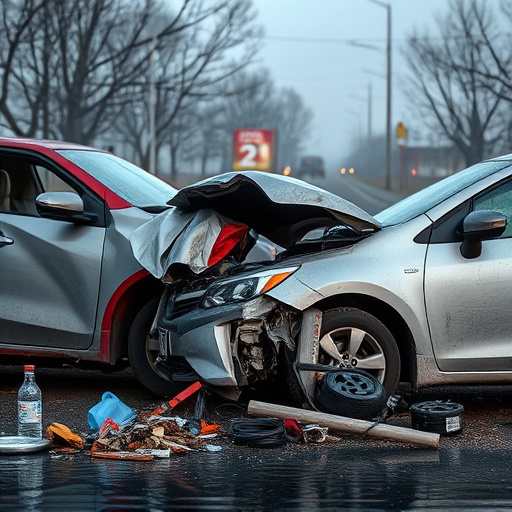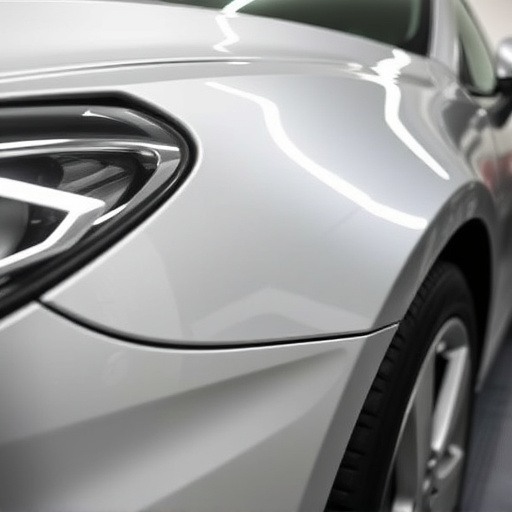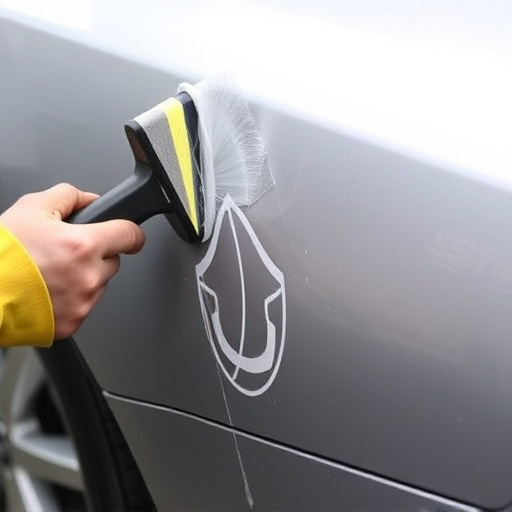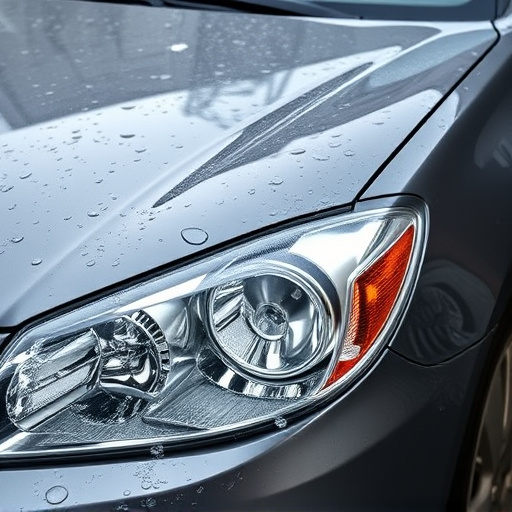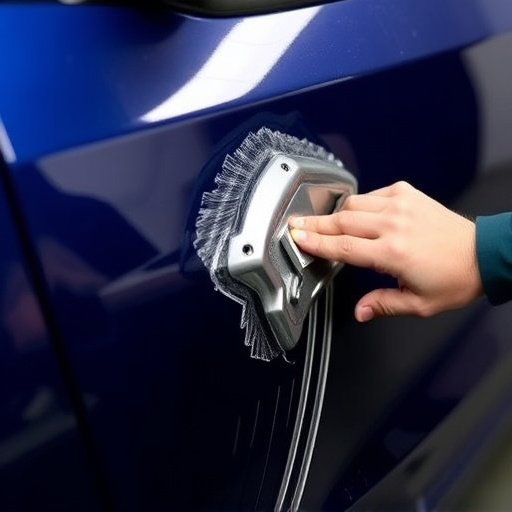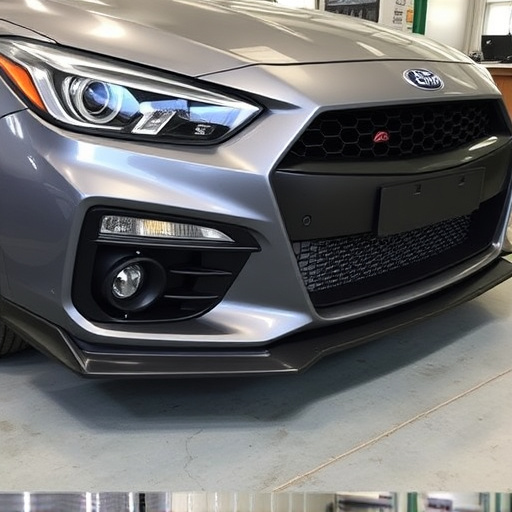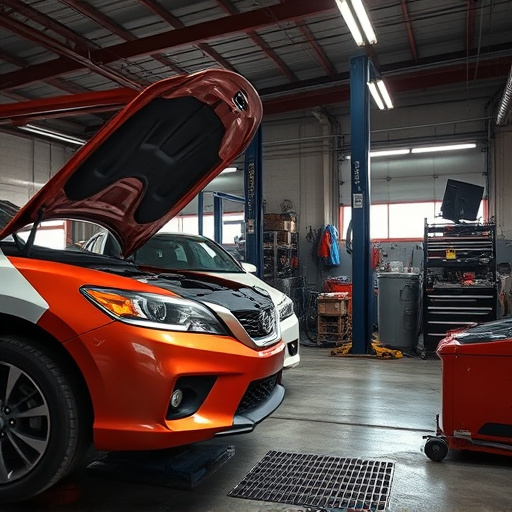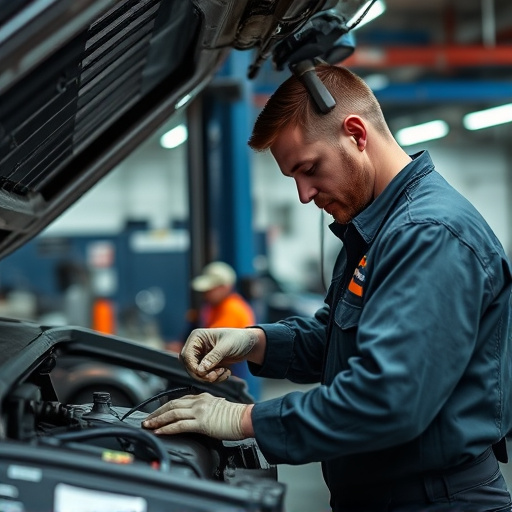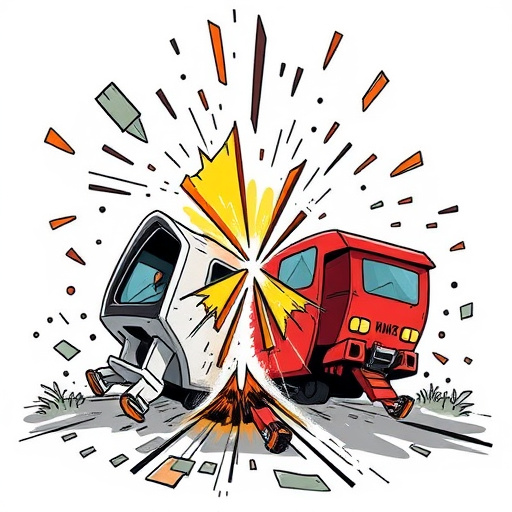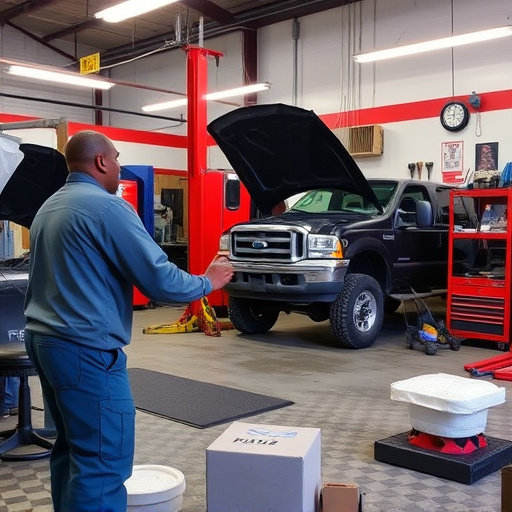After a car crash, promptly evaluate battery damage as compromised batteries pose safety risks and may require replacement due to structural, electrolyte, or electrical issues. Seek professional assessment at collision repair centers for safe and efficient battery replacement, preventing fire hazards and guiding concurrent bodywork repairs as needed. Ensure vehicle operability and safety by addressing battery condition early, especially with visible damage or overheating signs.
In the event of a car accident, one often overlooked yet critical component that can suffer significant damage is the vehicle’s battery. Understanding what happens to your car battery during an accident and knowing how to navigate its subsequent replacement is essential for safety and peace of mind. This article guides you through the process, from recognizing battery damage to ensuring proper handling post-crash, emphasizing the importance of a timely battery replacement after a collision for both vehicle performance and driver safety.
- Understanding Car Battery Damage in Accidents
- When and How to Replace Your Battery After a Crash
- Ensuring Safety Post-Accident: Battery Considerations
Understanding Car Battery Damage in Accidents
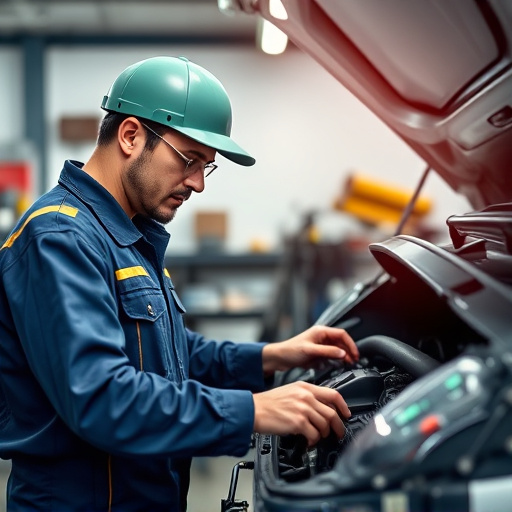
In the event of a car accident, the impact can cause significant damage to various components, including the car battery. Understanding how accidents affect batteries is crucial for both safety and cost-effectiveness after a crash. When vehicles collide, the force can lead to physical damage, such as cracks or punctures in the battery casing, leaking electrolyte, or even complete disconnection from the vehicle’s electrical system. These issues can cause temporary or permanent dysfunction, affecting how well the battery starts the engine or powers auxiliary systems.
Battery replacement after a crash is often necessary due to these potential damages. It’s important for drivers involved in accidents to have their vehicles inspected by a professional at a collision repair center. Skilled technicians can assess not just the battery but also other critical components, ensuring that everything is safely repaired or replaced. This proactive approach not only guarantees optimal vehicle performance but also prevents further complications that could arise from neglected battery damage, such as short circuits or fire hazards, and aids in seamless vehicle scratch repair and collision repair processes.
When and How to Replace Your Battery After a Crash
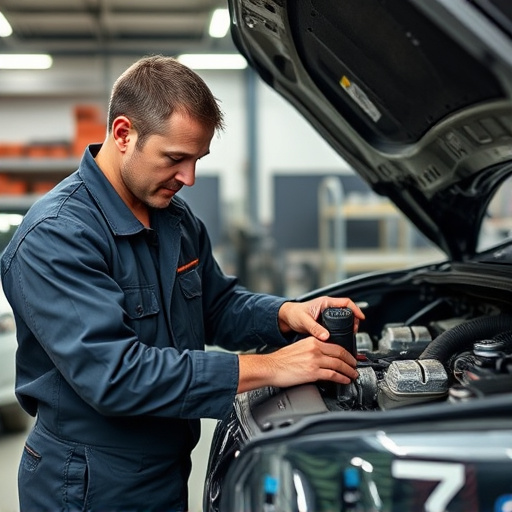
After a car accident, your vehicle’s battery can be severely impacted, especially if it’s been damaged or exposed to extreme conditions. Understanding when and how to replace your battery is crucial for keeping your vehicle operational and ensuring safety. If the battery shows signs of damage, like leaking fluids, swelling, or corrosion, replacement is necessary. Corrosion buildup on terminal clamps is also a clear indicator that your battery needs to be replaced.
When in doubt, consult with automotive repair professionals who can assess the extent of the damage. They can perform tests to determine if the battery still holds a charge and offer guidance tailored to your specific vehicle. Remember, proper battery replacement involves more than just swapping out the old for new; it requires careful handling due to the hazardous materials involved. Autobody repairs might also be needed if the crash caused structural damage that affects battery placement or accessibility.
Ensuring Safety Post-Accident: Battery Considerations
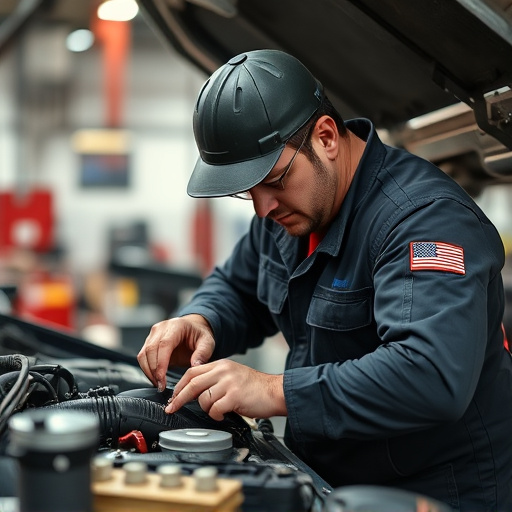
After a car accident, ensuring safety and taking appropriate measures is paramount. One often-overlooked aspect is the condition of the vehicle’s battery. In the chaos following a crash, it’s crucial to check if the battery is still functional. A damaged or leaked battery can pose significant risks due to its chemical composition; handling it improperly may result in electrical shocks or even fires.
If the accident caused visible damage to the battery, such as a ruptured casing or signs of overheating, immediate replacement is recommended. Battery replacement after a crash is essential not only for safety but also to prevent further complications. Auto body repair specialists can assess the extent of the damage and guide owners on whether to repair or replace their batteries. This ensures that drivers can start their vehicles safely and avoids potential hazards during the auto body repair process, including dent removal and vehicle paint repair.
In the aftermath of a car accident, understanding what happens to your vehicle’s battery is crucial. While minor fender benders may not cause significant damage, more severe collisions can lead to battery failure or leakage. Knowing when and how to replace your battery post-crash is essential for ensuring your safety and preventing further complications. Always prioritize safety first and consult a professional mechanic for guidance on battery replacement after a crash.
